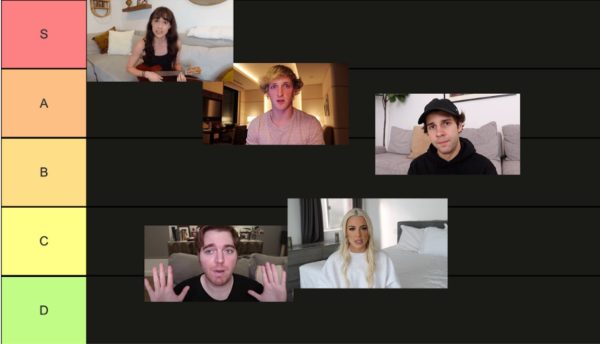IHS Admin Forcibly Disbands Debate and DECA
Debate and DECA have been declared illegal by the IHS admin, in coordination with federal authorities.
In a surprise announcement on Thursday, the Irvington administration announced the immediate and permanent dissolution of Debate and DECA due to violations of federal antitrust legislation. The assets of these two criminal enterprises will be liquidated and divided between shareholders, and their leaders may face time behind bars.
The administration cited the Clayton Antitrust Act as the primary vehicle for their actions. The law, originally passed in 1914, bans any individual company from monopolizing an industry or engaging in predatory pricing. According to the administration and their contacts at the FBI and SEC, Debate and DECA were clearly in violation of the law.
“We received over three hundred student complaints about the unethical business practices of these two companies in the past two years,” noted Principal Nathania Chaney-Aiello. “We had to take a look, and we simply could not believe what we saw. Prices for tournaments were obscene, transparency did not exist whatsoever, and even joining these so-called clubs required the payment of a hefty fee exceeding $50.”
Indeed, DECA’s Anaheim tournament is one of the most expensive events on the entire campus, with a fee of $770 per competitor – a cost that does not include food, and only pays for a shared room at the Anaheim Marriott.
“The graft is incredible. They’re raking in profits off of horrendously overpriced tournament packages, and using it to pad their bottom line,” commented one member of the Federal Trade Commission (who wished to remain anonymous). “They say they exist to educate people about business, but in reality, they are a business.”
Debate has come under similar fire for what many perceive as unethical business practices. Their much-despised policy of forcing prospective members to buy a jacket is at the top of the list.
“To put it bluntly, we’re stunned,” declared Director of the FBI Christopher Ray at a televised address last week. “The corruption we’re looking at here is so blatant and wide-reaching that the FBI lacks the resources to properly pursue it.”
When asked if he agreed with Ray’s assessment, US Attorney General Merick Garlund responded, “Oh, absolutely. People have gotten multi-century sentences for much less severe offenses; the least we can do at this stage is to ensure a proportionate response. We’re looking at, perhaps, one millennium in federal prison for the ringleaders.”
Of course, Debate and DECA maintain that they have not engaged in any wrongdoing. One DECA representative summed up the company’s arguments by stating, “We are not crooks. We did not have unethical business relations with those students. We did not.”
There is also the question of whether the antitrust legislation can break up Debate and DECA, as the legal status of these clubs is somewhat ambiguous. “The Clayton Antitrust Act cannot apply to us because we are clubs, not companies,” argued Debate’s representatives. “We are an entity wholly regulated by ASG and, therefore, any failure on our part is a failure on ASG’s part. They should face the penalties for failing to regulate us well enough.”
But legal scholars are not convinced. Dr. J. U. Stice, Emeritus Professor at Washington University in St. Louis, believes that these so-called clubs meet all the criteria to be classified as companies.
“You look at these entities, and you see that they’re conducting massive financial transactions in the tens of thousands of dollars, with a consistent yearly revenue stream. That’s the hallmark of a business.”
Ironically, while Debate has increased its balance by over $2,000 this year, DECA has lost more than $87,000 (yes, really). Federal auditors have reviewed the numbers and, inexplicably, found no traces of fraud.
“Losing $87,000 is a real accomplishment, hats off to them,” chief investigator Jo Kerr stated in his primetime broadcast. “While we won’t be prosecuting them for that, it certainly puts to bed any idea that they aren’t a company. How many times have you seen a school club legitimately lose that amount of money?”
Debate and DECA have filed a joint appeal, which will be ruled upon next month at the 9th Circuit Court of Appeals in San Francisco. If they lose the case, the road is open to criminal proceedings against the CEOs and management of both companies. Until then, stay tuned for updates.







